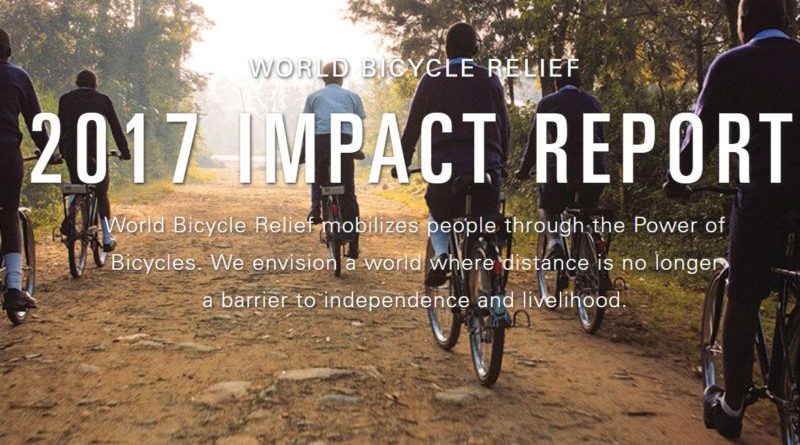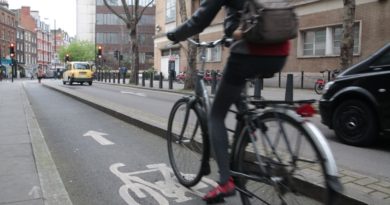World Bicycle Relief handed out 54,687 bikes in 2017
World Bicycle Relief’s charitable efforts saw nine countries benefit from just shy of 55,000 donated bicycles in 2017, a new report has shown.
The global non-profit, started by SRAM founder F.K. Day and Leah Missbach Day in 2005, has published its Annual Global Impact Report, a document that outlines how the 392,000 bicycles distributed since its inception have changed lives around the world.
WBR is built on an innovative model that combines life-changing philanthropic programs with social enterprise sales. Currently, 70% of WBR donations fund bicycle programs. The impact is matched by social enterprise sales to companies, non-profit organisations and individuals who purchase Buffalo Bicycles for their own use in rural communities.
“When a person whose primary mode of transportation is walking receives a bicycle, a quantum leap in productivity takes place,” said WBR Co-Founder and Chairman F.K. Day. “Every day in the field, we see how a simple heavy-duty, high-quality bicycle can transform the lives of individuals and their families. This year’s results reinforce our commitment to continued growth and helping many more people conquer the barrier of distance, achieve independence, and thrive.”
The charity is mindful of how it distributes the Buffalo bikes and has this year provided 70% of the stock to students and females. The funding has also seen 222 mechanics trained in the field to keep bikes operational.
This year Colombia, Ghana, the Ivory Coast, Kenya, Malawi, Mozambique, Thailand, Zambia and Zimbabwe benefited from donations.
The effects of these donations are wide-ranging, according to this study.
Impact on Education: In 2017, WBR launched an in-depth study to evaluate the impact of bicycles on girls’ empowerment, self-esteem, and confidence as well as on school attendance, enrollment, and academic performance. WBR and UBS Optimus Foundation are co-funding the rigorous, two-year randomized control study led by Innovations for Poverty Action (IPA) to measure the impact of our Bicycles for Educational Empowerment Program (BEEP) on girls and boys in Zambia.
Impact on Farming: A WBR study conducted in Zambia to measure the influence of bicycles on the transportation challenges of a sample of recipient farmers found that farmers with bicycles increased their monitoring visits by 120% while reducing time spent traveling by 60% and 90% of farmers used their bicycles to transport produce to market.
“Bicycles are an often overlooked development tool,” said WBR CEO Dave Neiswander. “We know bicycles can drive global progress and that mobility through a quality bicycle can help break the cycle of poverty and disease. Our vision for 2018 and beyond is to continue to innovate, collaborate and create viable bicycle ecosystems that support educated children, healthier communities, and robust economies that benefit all.”
Since 2005 WBR has achieved:
● 392,000+ bicycles distributed
● 206,000 bicycles funded
● 186,000 bicycles sold
● 1,906 field mechanics trained
● 6 research studies published: 2 Education, 2 Economic Development, 1 Healthcare, 1 Disaster Relief



